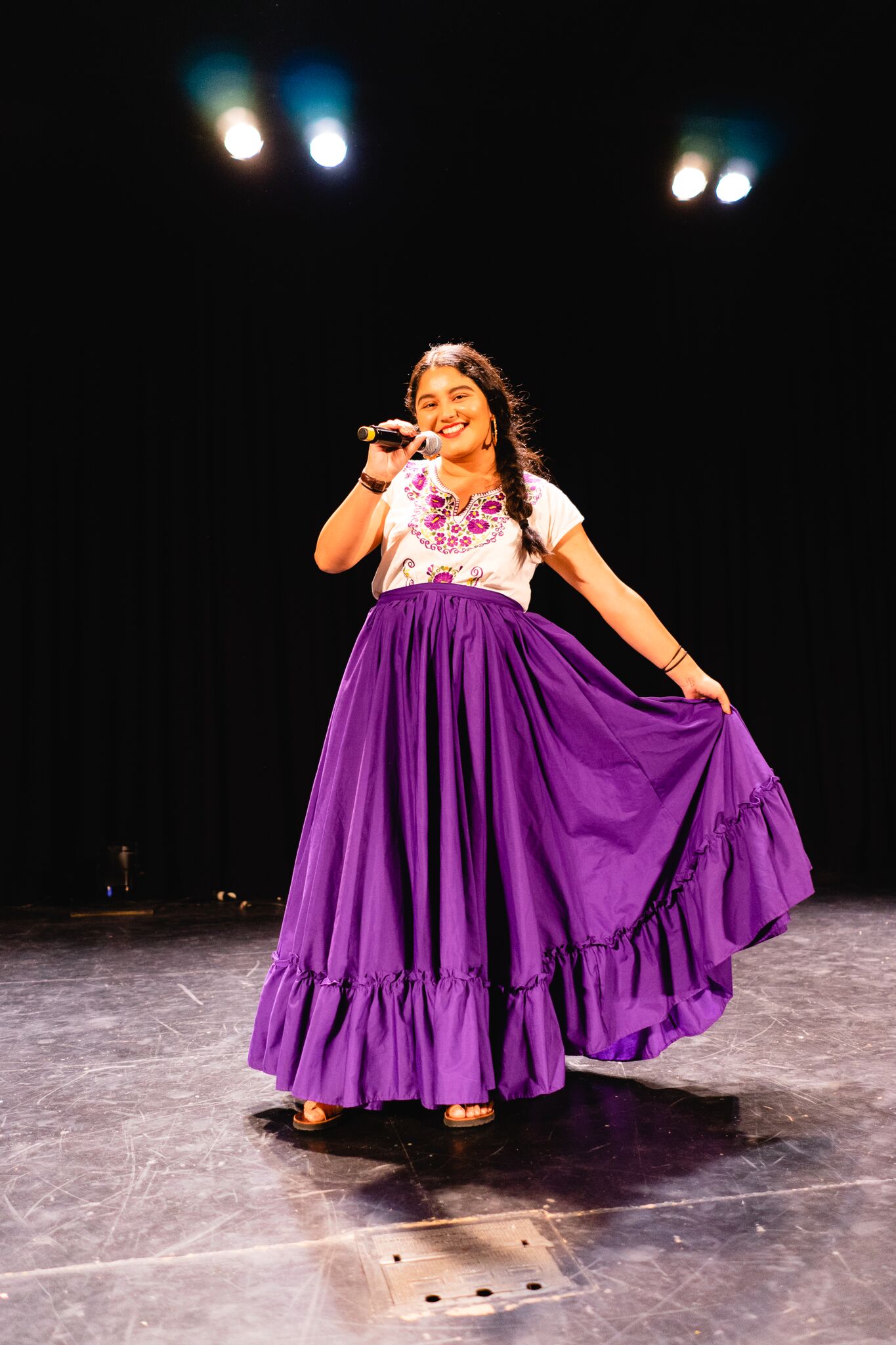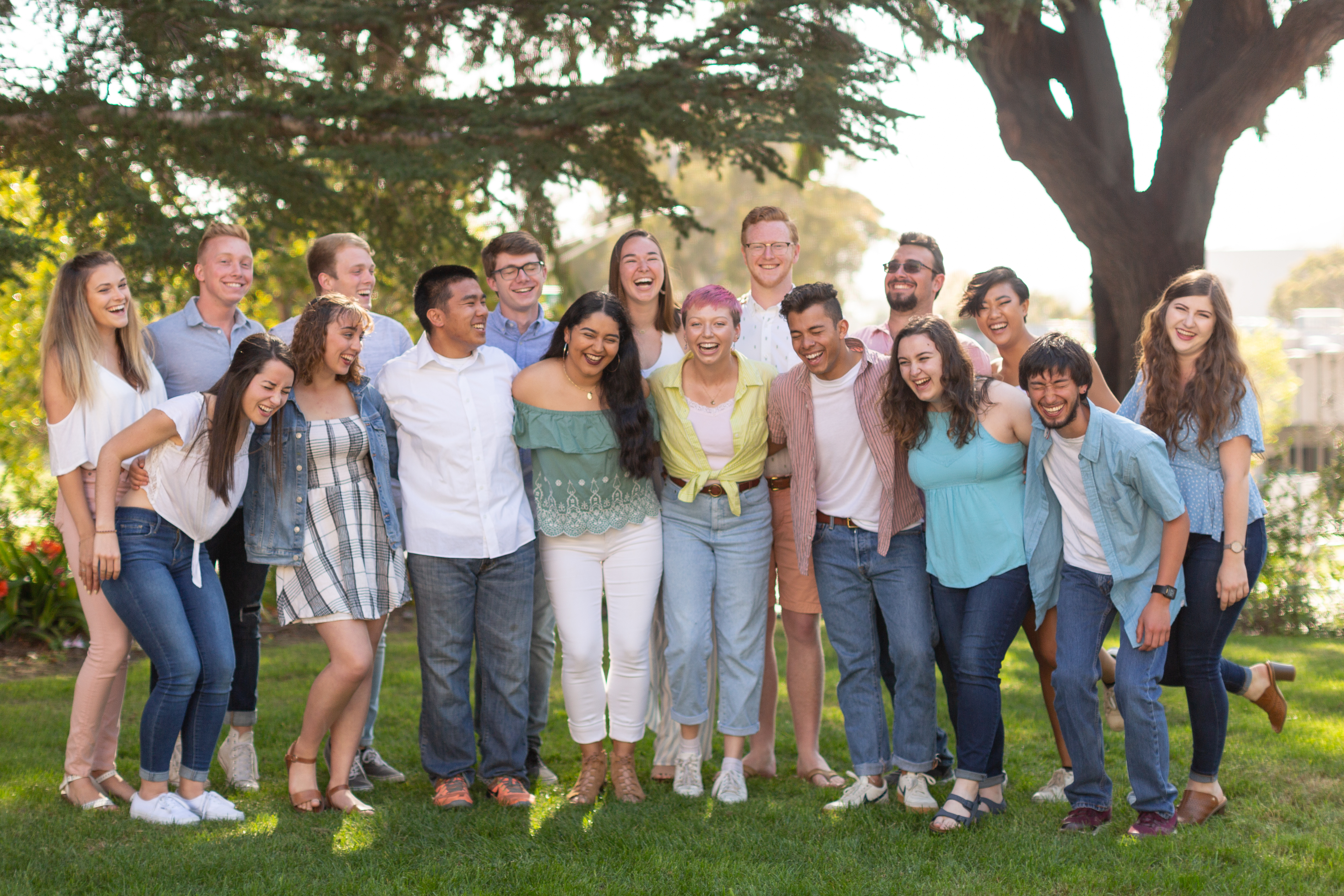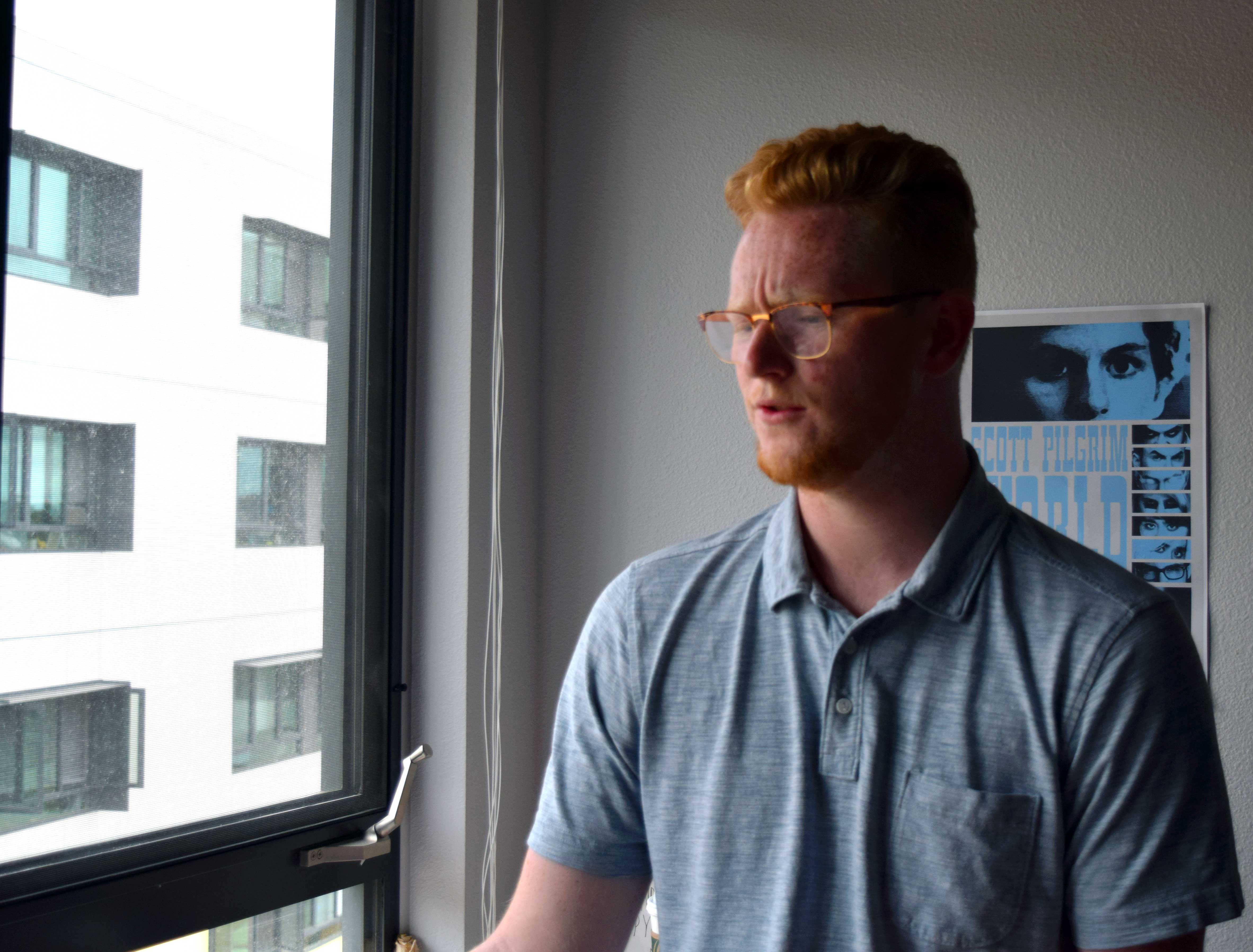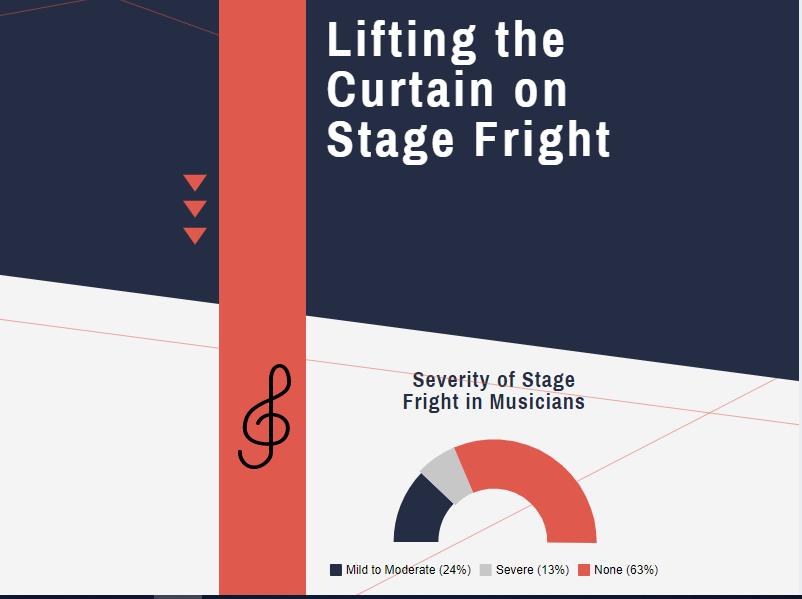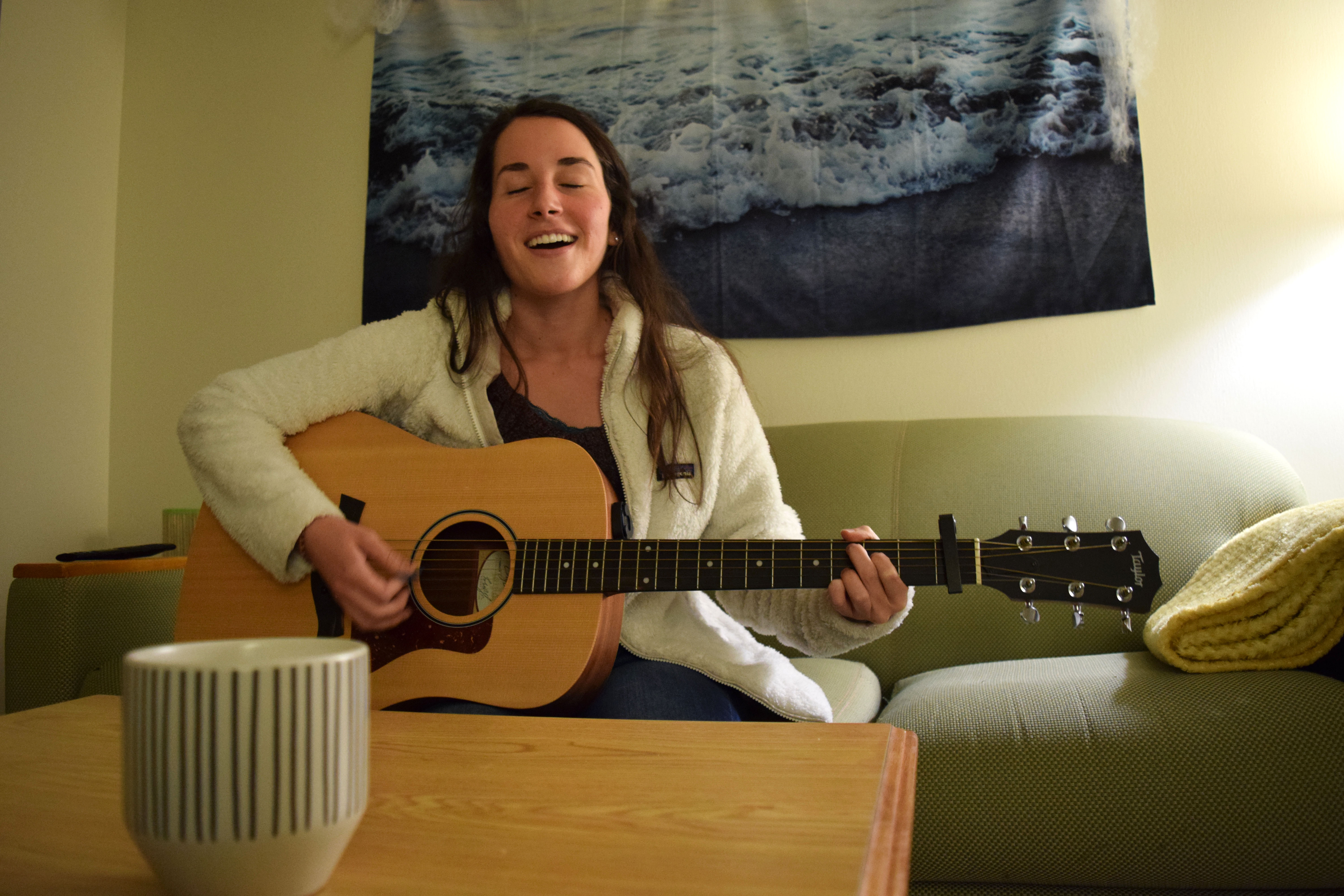
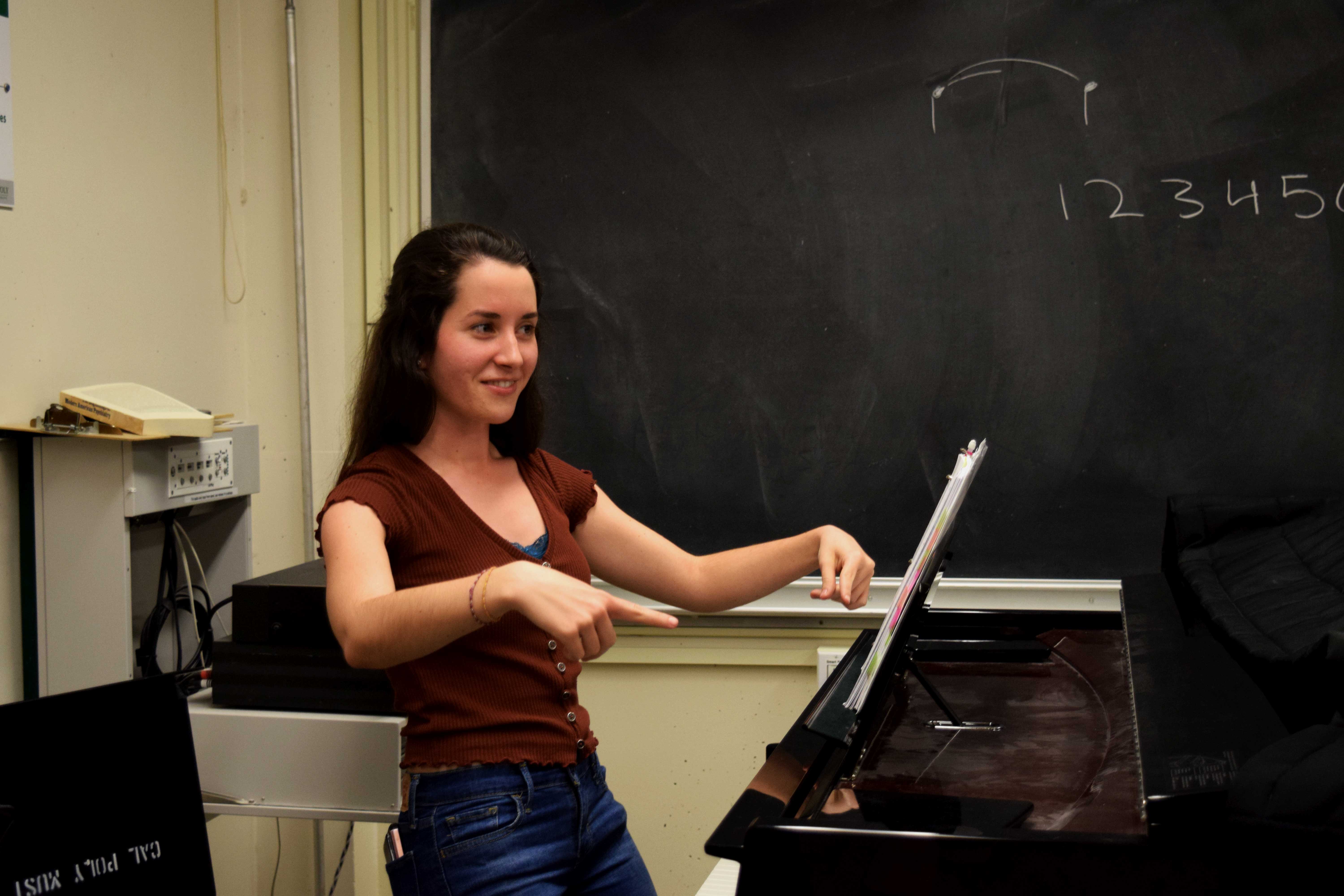
Capella, substituting for her acapella group’s music director, began rehearsal by leading warm ups. Capella is thrilled to be a part of acapella. “TTK is my why,” Capella said. “Why I came to Cal Poly, and why I’m here.”
(TTK stands for That’s the Key – the name of the acapella group.)
Acapella group member Jack Hoemering sings along to “I Wanna Dance with Somebody.” 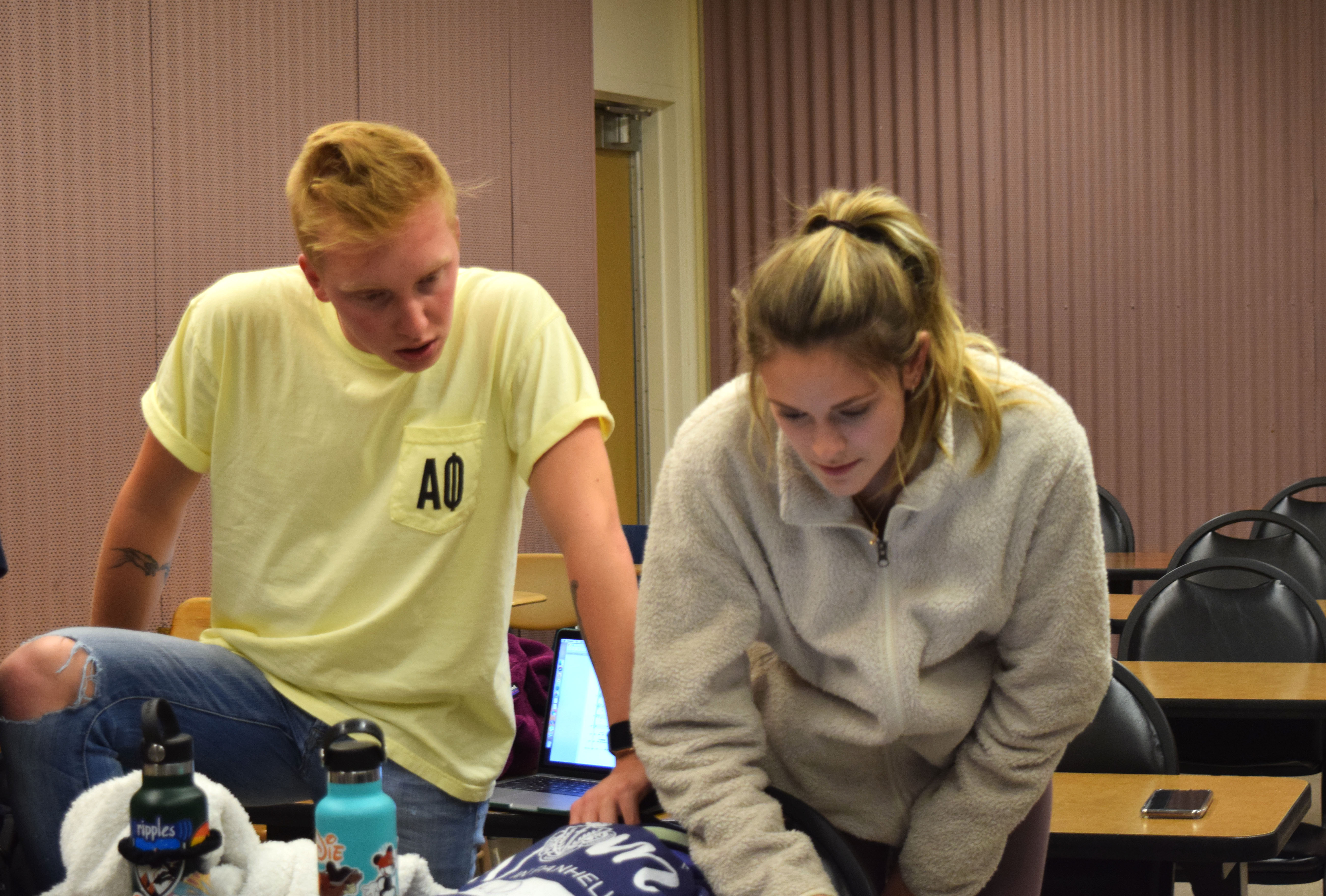
Music director Shane Williamson and group member Ashley Marckel search their sheet music for dynamic markings.
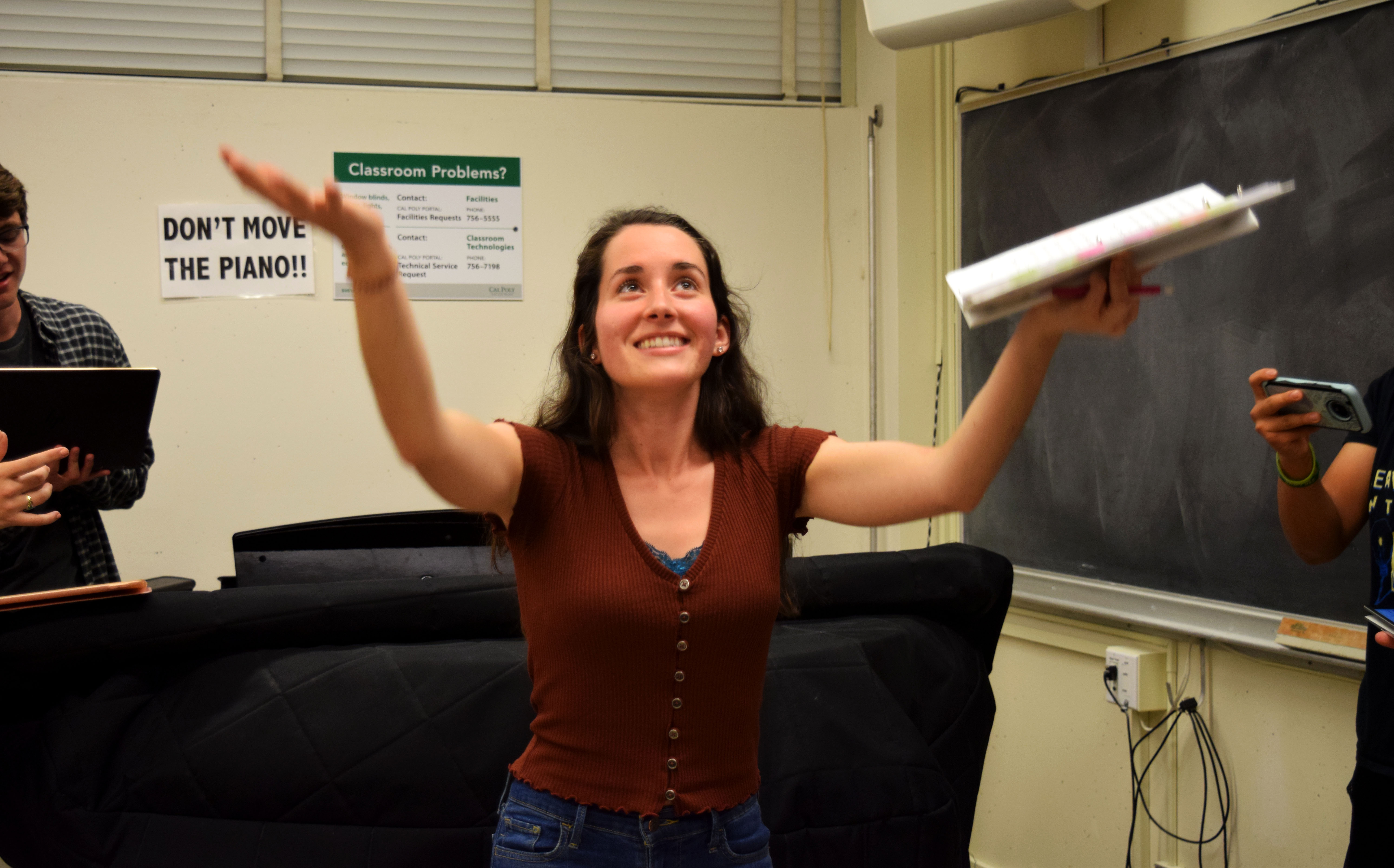
Here, Capella encourages the group to sing louder. She enjoys leading the group because she can practice what she learned in her music major classes. 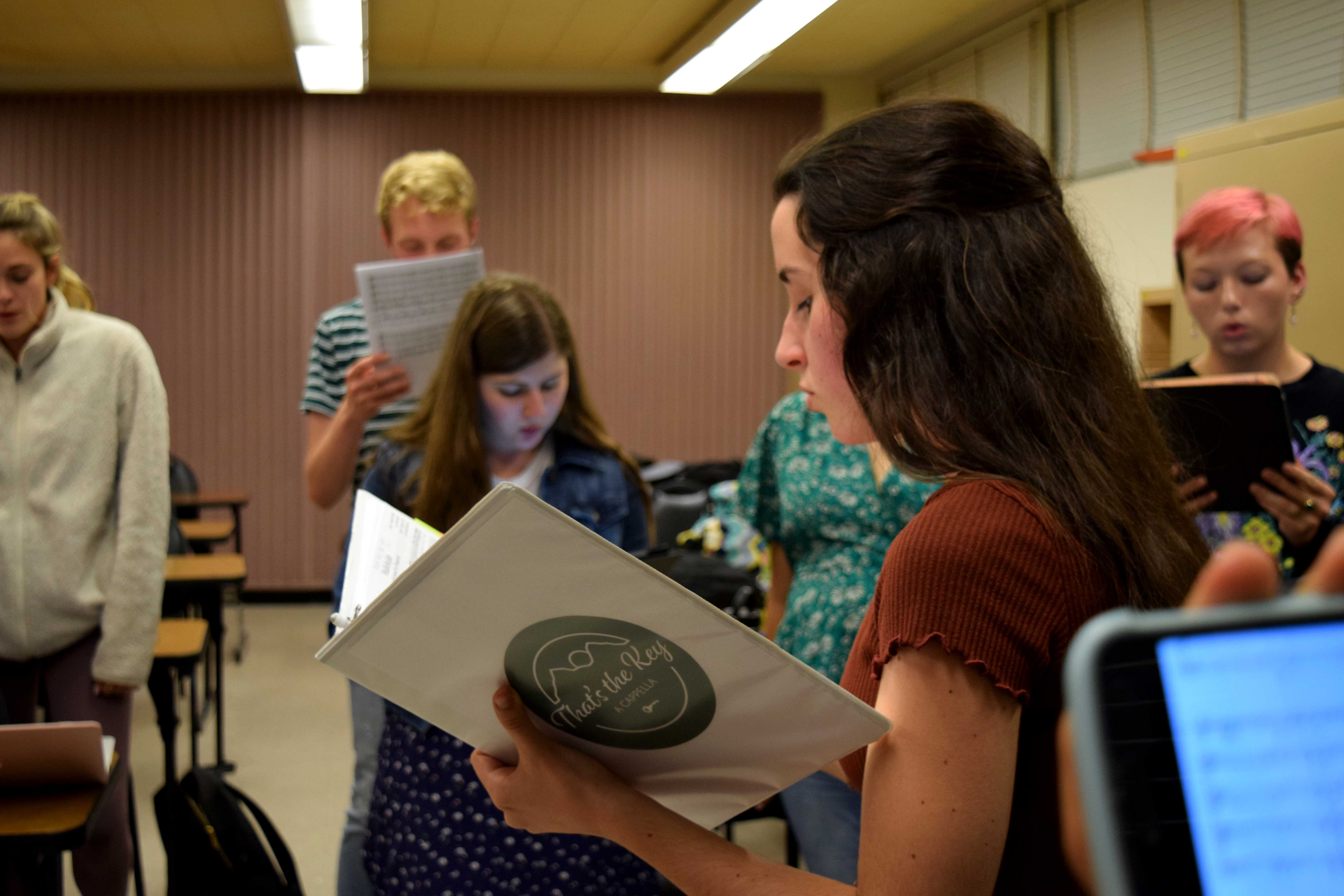
Capella leading the group in singing “Hallelujah.” 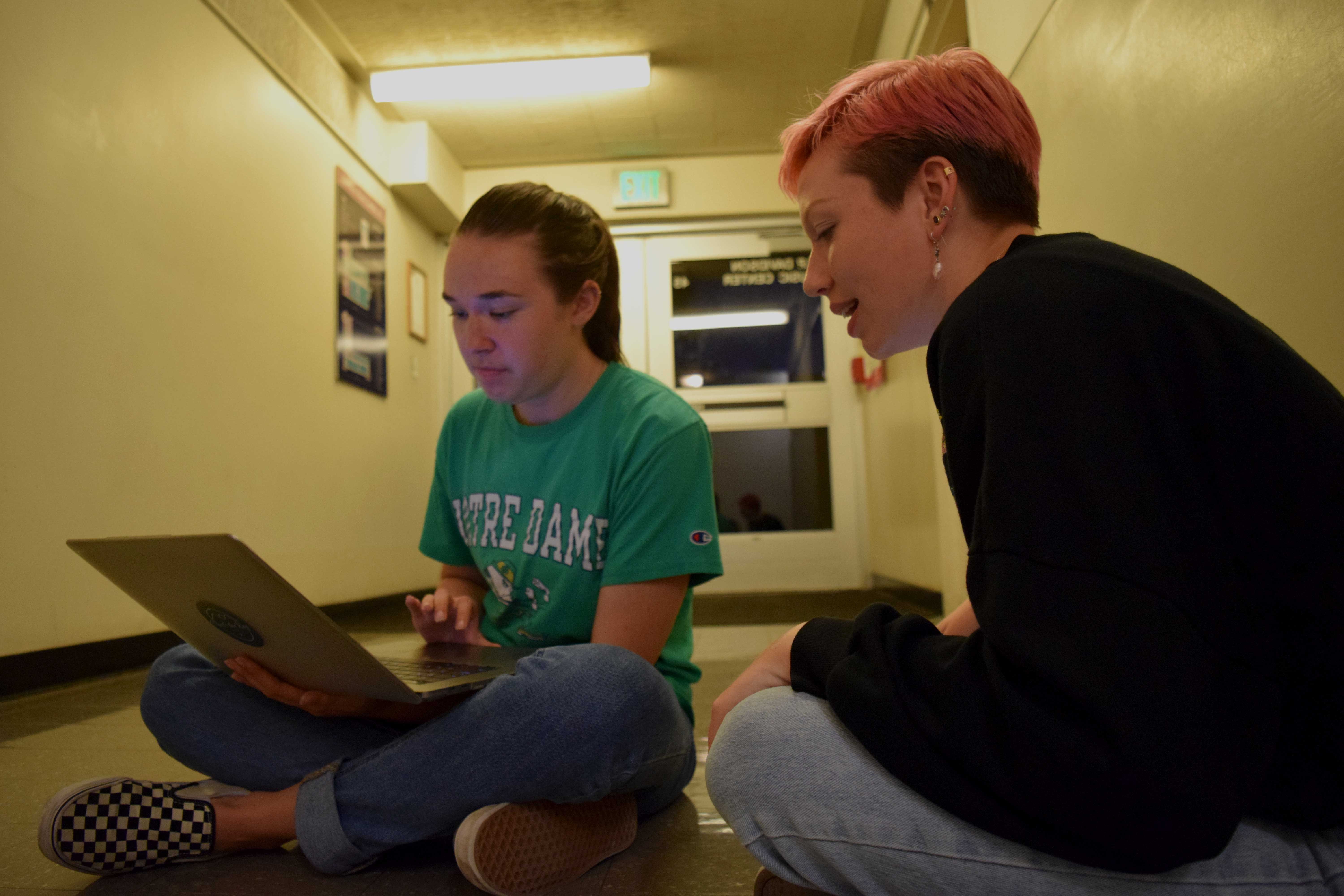
Two of the altos, Nadine Koen and McKenna Sorenson, in sectionals learning their notes. 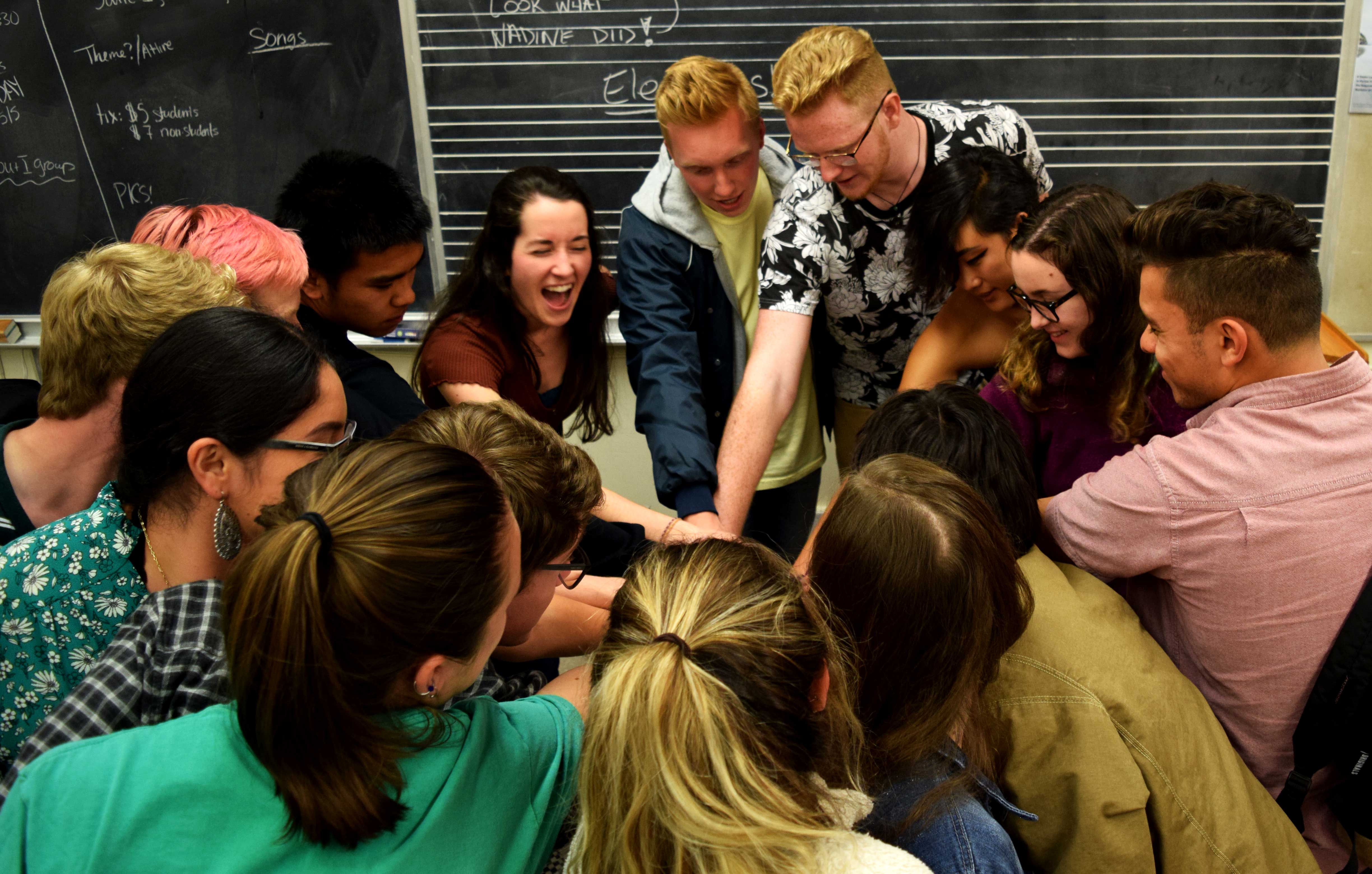
Rehearsal ended with a group huddle. Once all of the group members squished into a circle, they yelled, “One…Two…Three…TTK!”
Most days, second-year Kylie Capella can be found in the music building with a psychology textbook in one hand and sheet music in the other. Capella officially added the music major to her psychology major this quarter, and between music classes and rehearsals for her acapella group, she practically lives in the music building.
“We all joke that we live in the music building,” Capella said. “It’s our home.”
When she can steal a few minutes of downtime from her studying and rehearsal plans, Capella can be found singing her heart out in a practice room.
“Going in a practice room when there’s no one else in the music building and just playing and singing whatever I want, knowing that no one cares and no one’s there to hear me feels really cool,” Capella said.
Capella often uses music as a tool for emotional expression. When she sings in front of an audience, she “need[s] to hold back from crying a lot of times,” she said.
Capella felt most connected to a performance when she sang L’a bbandono during Cal Poly’s winter voice recital. The recital took place in the choir room in the music building.
“Performing in [room] 218 was so intimate because you can see everyone’s faces… I could look into their eyes and really connect with them. It was like I was having a conversation,” she said.
Capella expressed that she enjoys emotionally connecting to music, and she’s not alone.
Shane Williamson, a second year physics major transfering into the music major, explained that he also uses music as a way to express his emotions.
“There’s an instrumental piece on piano that I composed and… I play it as an emotional release,” Williamson said. “I’ll sit down at the piano and play that composition just because there was a lot of emotion that went into writing it, so I can really express myself and feel what I’m playing.”
It’s no secret that people have strong emotional connections to music, but why? It turns out that listening to music causes the brain to release dopamine, a chemical responsible for feelings of pleasure and reward, according to Berkeley’s science magazine The Greater Good.
Dopamine is released during emotional climaxes in a song, which could explain why people feel emotional during loud and expressive sections of music, according to Nature Neuroscience.
Additionally, the brain releases small amounts of dopamine before these climaxes in the song, so when a person listens to a song they’re familiar with, they receive more dopamine, the journal explained.
Williamson’s most memorable performance was when he sang Frank Sinatra’s Fly Me to the Moon for his high school choir concert.
As a kid, Williamson would sing Sinatra in the shower with a shampoo bottle for a microphone and a rubber ducky as his audience. His senior year of high school, he traded the shower for the stage, and he couldn’t have been happier.
“That performance was so impactful and powerful to me as a musician because it was the realization of this dream that I didn’t even really think was attainable.”
Williamson enjoyed performing this song to express the joy and pride he felt for bringing the song to life, he said.
“I remember just being on stage singing those notes and letting everything spill out,” Williamson said, smiling at the memory.
